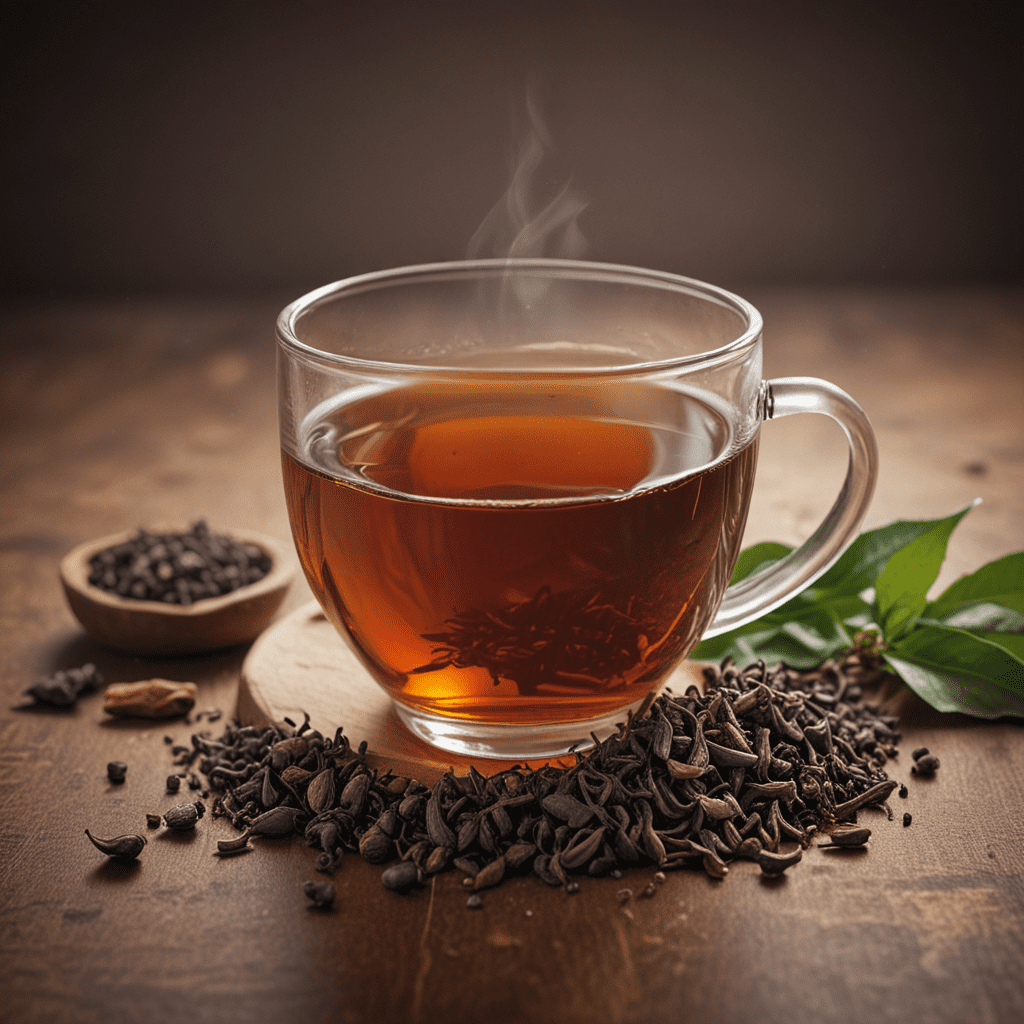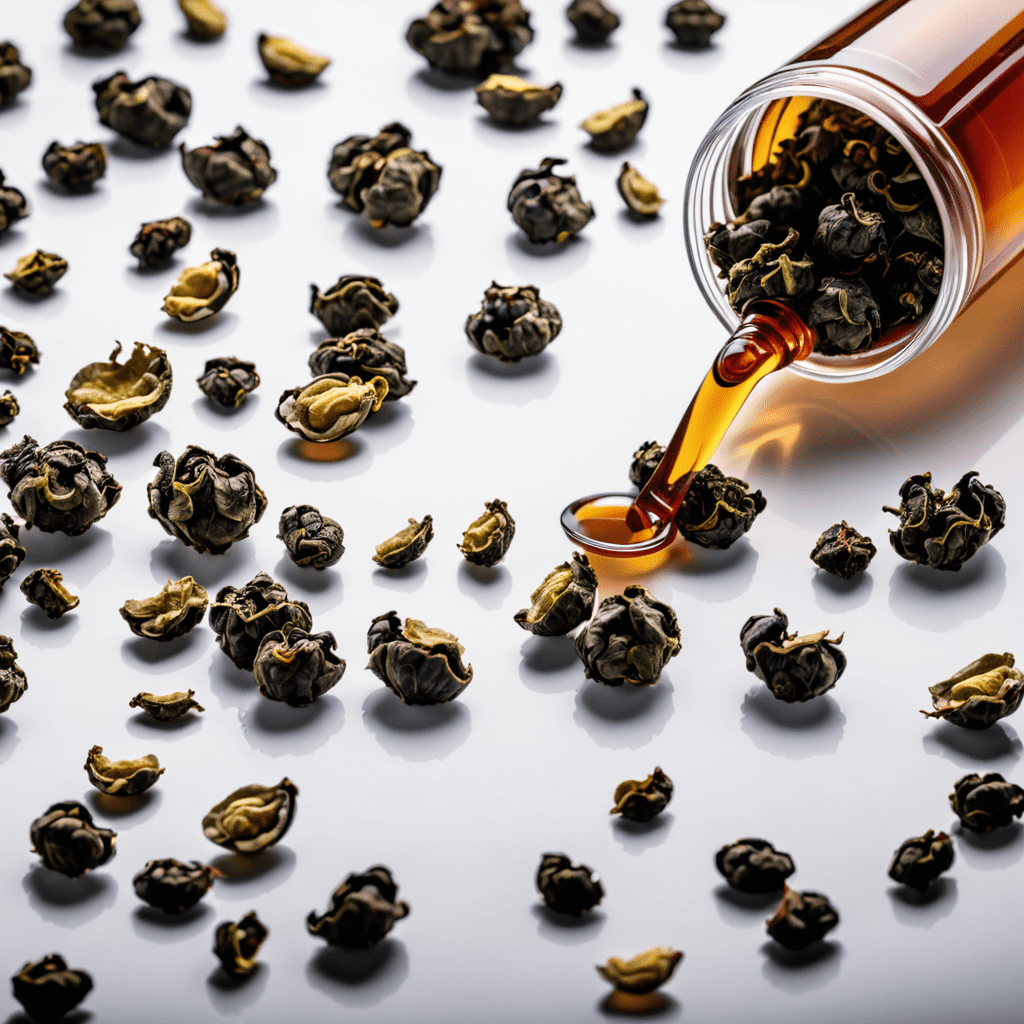Assam Tea: Aromatic Bliss in Every Sip
I. Introduction
Assam tea, a renowned beverage originating from the verdant valleys of Northeast India, is celebrated for its distinctive flavor and alluring aroma. Cultivated in the heart of the Brahmaputra Valley, Assam tea has garnered global fame for its full-bodied taste, malty undertones, and invigorating astringency. Its legacy, dating back to the 19th century, has intertwined with the cultural fabric of Assam, becoming an integral part of the region's identity.
II. Growing Conditions
Assam's unique climate and soil tapestry provide an ideal environment for tea cultivation. The region's abundant rainfall, coupled with warm temperatures and humidity, foster lush tea bushes that thrive in the fertile alluvial soil. The Brahmaputra Valley, with its vast expanse of tea gardens, has emerged as the epicenter of Assam tea production. The region's rolling hills and abundant sunshine contribute to the optimal growing conditions that endow Assam tea with its characteristic qualities.
III. Varieties and Characteristics
Assam tea encompasses a diverse range of varieties, each boasting a distinct flavor profile. The most prominent varieties include:
- Assam CTC (Crush, Tear, Curl): Processed using a mechanical method, CTC teas yield a robust, full-bodied brew with a malty sweetness.
- Assam Orthodox: Crafted using traditional techniques, orthodox teas offer a more nuanced flavor with floral notes and a hint of smokiness.
- Traditional Assam: Prepared using ancient methods, traditional Assam teas showcase a rich, earthy flavor with a lingering finish.
IV. Processing and Preparation
The processing of Assam tea involves several meticulous steps. After harvesting, the tea leaves undergo withering, rolling, oxidation, and drying. The method of processing determines the tea's final flavor and texture.
To fully appreciate the exquisite taste of Assam tea, proper preparation is essential. Using freshly boiled water, steep the tea leaves for 3-5 minutes, depending on the desired strength. For a more traditional experience, Assam tea can be brewed using a clay pot and charcoal, allowing the flavors to develop gradually.
V. Health Benefits
Beyond its captivating taste, Assam tea also boasts an array of health benefits. Its high antioxidant content helps protect against cellular damage, while its moderate caffeine content provides a gentle boost of energy. Studies have suggested that Assam tea may aid in weight management, improve heart health, and even alleviate stress.
VI. Economic Importance
Assam tea plays a pivotal role in the economy of Northeast India and India as a whole. As one of the largest tea-producing regions in the world, Assam's tea industry sustains a vast network of plantations, factories, and ancillary businesses. The export of Assam tea contributes significantly to India's foreign exchange earnings, making it a vital economic driver for the nation. Additionally, tea cultivation provides employment and livelihoods to millions of people in Assam, directly and indirectly, shaping the region's social and economic landscape.
VII. Cultural Significance
Tea gardens have become deeply intertwined with the cultural fabric of Assam. The rolling hills carpeted in emerald-green tea bushes have become iconic symbols of the region and its heritage. Traditional tea ceremonies and rituals hold great importance in Assamese culture, with tea serving as a cornerstone of social gatherings and festivities. Through the centuries, Assam tea has become more than just a beverage; it has become an integral part of the Assamese identity, reflecting the region's distinct traditions, values, and way of life.
VIII. Challenges and Sustainability
Like any industry, Assam tea production faces its share of challenges. Climate change, with its erratic rainfall patterns and rising temperatures, poses a significant threat to tea cultivation. Labor issues, including fair wages and working conditions, also require ongoing attention to ensure the sustainability of the industry. In response to these challenges, sustainable practices and initiatives have emerged to protect and preserve Assam's tea heritage. Initiatives focused on organic farming, water conservation, and ethical labor practices are being implemented to ensure the long-term viability of Assam tea production.
IX. Marketing and Consumption
Assam tea is marketed both domestically and internationally, reaching consumers worldwide. Marketing strategies emphasize the tea's unique flavor profile, health benefits, and cultural significance. Brand building efforts focus on creating a strong and distinctive identity for Assam tea, differentiating it from other varieties in the marketplace. Assam tea has gained popularity among consumers for its robust taste, versatility, and suitability for various brewing methods. It is widely available in tea bags, loose-leaf form, and specialty blends, catering to diverse consumer preferences.
X. Conclusion
Assam tea, with its captivating taste, invigorating aroma, and rich cultural significance, embodies the aromatic bliss that has delighted tea enthusiasts for generations. Cultivated in the heart of the Brahmaputra Valley, Assam tea is a testament to the region's unique growing conditions and cultural heritage. From its health benefits to its economic importance, Assam tea continues to enchant and invigorate tea lovers around the globe. Its enduring legacy as an aromatic delight ensures that Assam tea will remain a cherished beverage for years to come.
FAQ
Q: What is the difference between Assam CTC and Assam Orthodox teas?
A: Assam CTC teas are processed using a mechanical method, resulting in a robust, full-bodied brew, while Assam Orthodox teas are crafted using traditional techniques, offering a more nuanced flavor with floral notes and a hint of smokiness.
Q: How do I brew the perfect cup of Assam tea?
A: For an optimal brewing experience, use freshly boiled water and steep the tea leaves for 3-5 minutes, depending on the desired strength. For a more traditional approach, brew the tea using a clay pot and charcoal.
Q: What are the health benefits of Assam tea?
A: Assam tea is rich in antioxidants and may aid in weight management, improve heart health, and have calming effects on stress levels.



